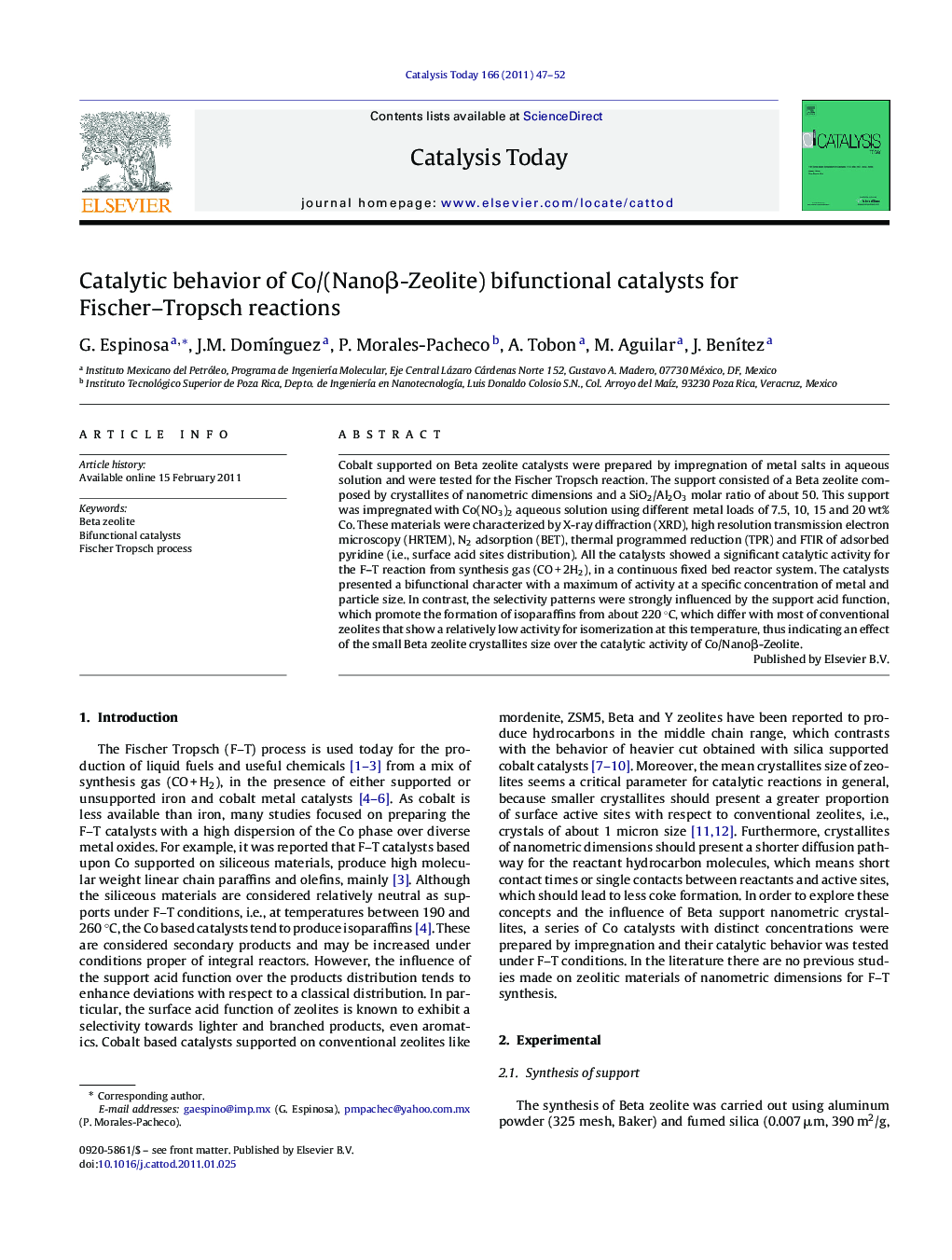| Article ID | Journal | Published Year | Pages | File Type |
|---|---|---|---|---|
| 55983 | Catalysis Today | 2011 | 6 Pages |
Cobalt supported on Beta zeolite catalysts were prepared by impregnation of metal salts in aqueous solution and were tested for the Fischer Tropsch reaction. The support consisted of a Beta zeolite composed by crystallites of nanometric dimensions and a SiO2/Al2O3 molar ratio of about 50. This support was impregnated with Co(NO3)2 aqueous solution using different metal loads of 7.5, 10, 15 and 20 wt% Co. These materials were characterized by X-ray diffraction (XRD), high resolution transmission electron microscopy (HRTEM), N2 adsorption (BET), thermal programmed reduction (TPR) and FTIR of adsorbed pyridine (i.e., surface acid sites distribution). All the catalysts showed a significant catalytic activity for the F–T reaction from synthesis gas (CO + 2H2), in a continuous fixed bed reactor system. The catalysts presented a bifunctional character with a maximum of activity at a specific concentration of metal and particle size. In contrast, the selectivity patterns were strongly influenced by the support acid function, which promote the formation of isoparaffins from about 220 °C, which differ with most of conventional zeolites that show a relatively low activity for isomerization at this temperature, thus indicating an effect of the small Beta zeolite crystallites size over the catalytic activity of Co/Nanoβ-Zeolite.
